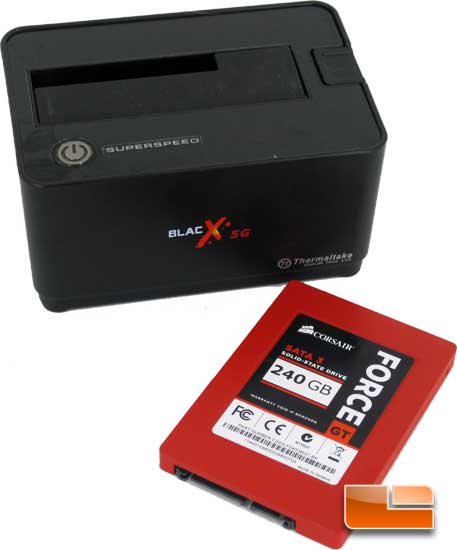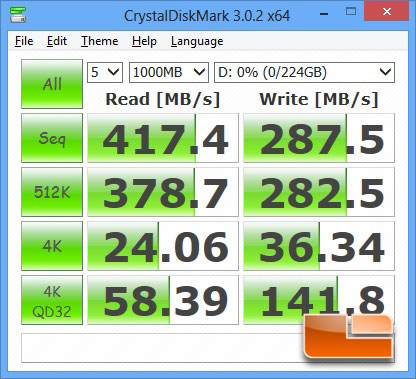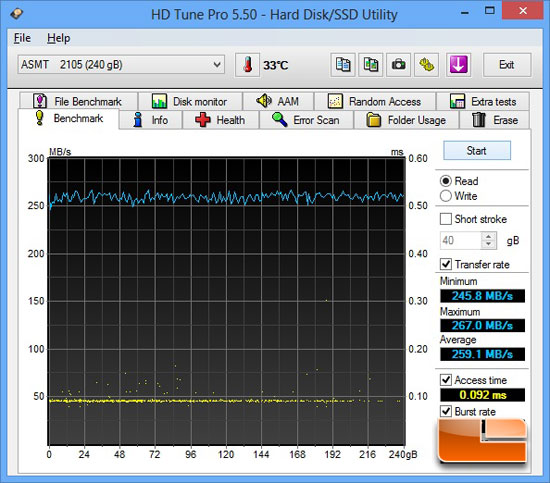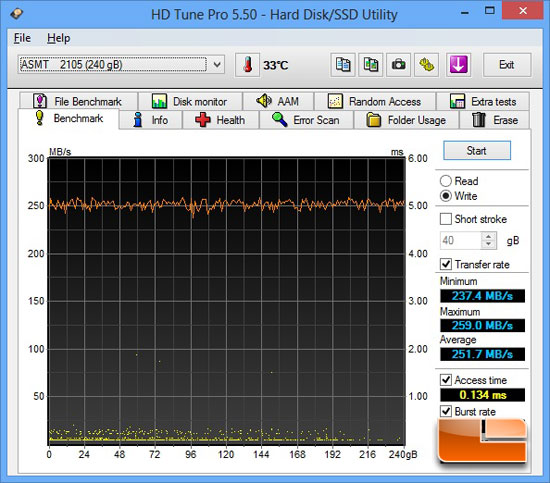GIGABYTE Z87X-UD3H Intel Z87 ‘Haswell’ Motherboard Review
Intel Z87 SuperSpeed USB 3.0 Performance Testing

There are a number of different Super Speed USB 3.0 host controllers out there. In order to know which ones perform the best we run a series of tests that will put the controller through the ringer and see how it comes out on the other side. Each of our motherboards uses a different Super Speed USB 3.0 controller and you can find the below.
CrystalDiskMark is a small benchmark utility for drives and enables rapid measurement of sequential and random read/write speeds. Note that CDM only supports Native Command Queuing (NCQ) with a queue depth of 32 (as noted) for the last listed benchmark score. This can skew some results in favor of controllers that also do not support NCQ.

Testing of the USB3 was done using the “Thermaltake BlacX 5G Hard Drive Docking Station . The drive used was an Corsair Force GT 240Gb SSD.

Benchmark Results: The GIGABYTE Z87X-UD3H was slightly slower than the other competitors in our USB 3.0 testing. Though it was still putting up some solid numbers, the average Sequential Read of the GIGABYTE Z87X-UD3H was 411.8MB/s and the Sequential Write was 355.9MB/s.
HD Tune Pro 5.00 is an extended version of HD Tune which includes many new features such as write benchmark, secure erasing, AAM setting, folder usage view, disk monitor, command line parameters and file benchmark.
Intel Z77 SuperSpeed USB 3.0 HD Tune 5.50 Read Benchmark Results

Intel Z77 SuperSpeed USB 3.0 HD Tune 5.50 Write Benchmark Results

Testing of the USB3 was done using the “Thermaltake BlacX 5G Hard Drive Docking Station . The drive used was an Corsair Force GT 240Gb SSD.

Benchmark Results: The GIGABYTE Z87X-UD3H was able to hit an average read of 239.4MB/s and an average write of 229.1MB/s. It’s slower than the ASUS Hero Z87 motherboard but faster than the MSI Z77A-GD65 Gaming motherboard.

Comments are closed.